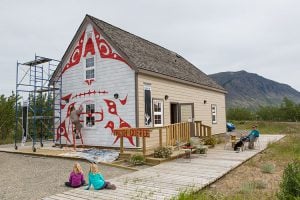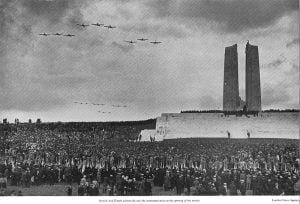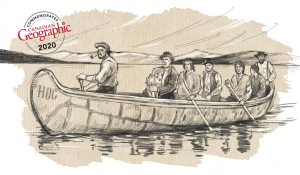
Travel
The spell of the Yukon
An insider’s account of the modern-day gold rush
- 4210 words
- 17 minutes
History
The bestselling author and historian on why exploration is essential to understanding Canada’s history

For many Canadians, Charlotte Gray hardly needs an introduction.
She is one of this country’s most loved authors and historians. For a quarter century she has delighted her readers with non-fiction histories that delve into often unexamined corners of Canadian history, revealing characters, places and moments in time that help explain this country.
Her works have covered such diverse subjects as 19th century pioneers Susannah Moodie and Catherine Parr Traill, First Nations poet Pauline Johnson, and the mother of William Lyon MacKenzie King, and have won more awards than we can list here. She is a member of the Order of Canada and a Fellow of the Royal Canadian Geographical Society.
She’s also an explorer who believes in travelling to the places that were important to her subjects in order to better understand them.
“You can’t ever write true biography or history without experiencing the landscape and seeing how it must have shaped people’s behaviour,” she says.
“You can’t ever write true biography or history without experiencing the landscape and seeing how it must have shaped people’s behaviour.”
When she was writing Gold Diggers, her 2011 book about the Yukon Gold Rush, Gray lived in Dawson City for three months.
“Landscape became almost another character in my book as I realized just how menacingly beautiful it was — the extraordinary sunsets, the giddy experience of the longest night,” she says.
Gray’s love of Canada and its geography took some time to fully flourish. A native of Sheffield, England, she came to Canada in the 70s at the invitation of a friend from university. Unfortunately, her six month stay coincided with a classic Ottawa winter.
“It started snowing on the 1st of May and I said, ‘I can’t stand this climate’ and bought a ticket home,” she laughs. “I didn’t realize that a sort of switch goes on about the 12th of May and the country transforms itself.”
Today, Gray still calls Ottawa home, and is still fascinated by the question of what makes Canada work as a country given its size and regional differences. She often finds insights into that question in the lives of the people who operated outside the halls of power.
“[When I’m writing a book], I’m always answering my own questions; I’m not really thinking about who’s the end user of this product,” she says.
Are you passionate about Canadian geography?
You can support Canadian Geographic in 3 ways:

Travel
An insider’s account of the modern-day gold rush

People & Culture
After spending more than a century in the shadow cast by the Klondike’s precious metal heyday, First Nations heritage is stepping into the limelight in the Yukon

History
A trip back in time to the memorial’s dedication

History
A look back at the early years of the 350-year-old institution that once claimed a vast portion of the globe